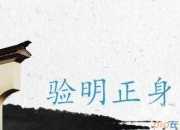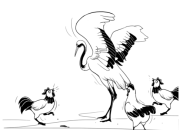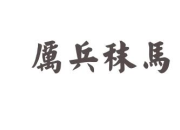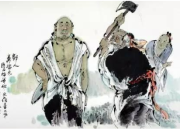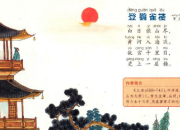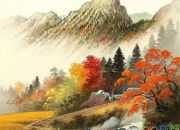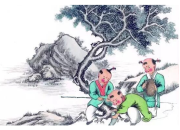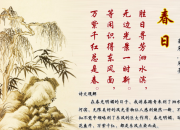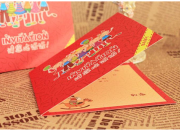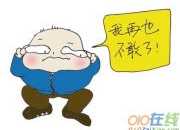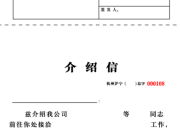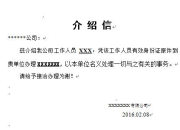清明节的故事100字英文版
时间:2021-08-31华夏文明永记心,民放文化民族魂,清明寄祖好传统,感恩情怀天下知,下面是事100字英文版清明节的故,欢迎大家阅读与了解。

清明节的故事100字英文版篇1:
Qing Ming is popularly associated with Jie Zi Zhui, who lived in Shanxi province in 600 B.C. Legend has it that Jie saved his starving lord's life by serving a piece of his own leg. When the lord succeeded in becoming the ruler of a small principality, he invited his faithful follower to join him. However, Jie declined his invitation, preferring to lead a hermit's life with his mother in the mountains.Believing that he could force Jie out by burning the mountain, the lord ordered his men to set the forest on fire. To his consternation, Jie chose to remain where he was and was burnt to death.
To commemorate Jie, the lord ordered all fires in every home to be put out on the anniversary of Jie's death. Thus began the "cold food feast", a day when no food could be cooked since no fire could be lit.The "cold food" festival occurs on the eve of Qing Ming and is often considered as part of the Qing Ming festival. As time passes, the Qing Ming festival replaced the "cold food" festival. Whatever practice is observed,the basic observation of Qing Ming is to remember one's elders by making a special effort to visit their graves, ashes or ancestral tablets. To make the visit even more meaningful, some time should be spent to remind the younger members of the family of the lives and contributions of their ancestors, and the story of Jie Zi Zhui who choose death over capitulation.
清明节的故事100字英文版篇2:
On Saturday, our whole family went to the hometown to ancestral tombs. The ancestral graves on the hillside, I picked up the broom, sweep around the ancestral graves leaves such as garbage. Then pick up the dishcloth, with clear water, carefully wipe the tombstone. After a vigorous after wiping, ancestral grave ancestral grave as new spotless, if brightness is new. Before long, ancestral graves were we sweep, after we worship, and went home for lunch. After eating a delicious lunch, I lay in bed, thinking in the heart: tomb-sweeping day ancestor worship is a festival, is we should all do, grave we praise, want to come but can't come to also want to give praise. But it never occurred to grave should be criticized and condemned! You ever think, ancestors of the credit have how old? Ancestors left the land for us, let us to build, a land... You ever think, if there are no ancestors, we, the ancestors of the credit is not ah! But now some people are at the qingming festival, the idea of no grave, the ancestors leave, has died, let weeds overgrown tomb. Such people should not be condemned by the people? Is a tomb-sweeping day, this is the eternal I couldn't help thinking of tu mu: "rains fall heavily as qingming comes, and passers-by with lowered spirits go......"
星期六,我们全家去老家为祖先扫墓。
到了祖坟所在的山坡上时,我就拿起扫把,把祖坟周围的落叶等垃圾扫得干干净净。接着又拿起抹布,沾上清水,仔仔细细地擦着墓碑。经过一番有力地擦拭后,祖先的墓碑祖先的墓碑新的一样一尘不染,光亮如新。没多久,祖坟就被我们扫好了,我们祭拜后,便走回老家吃午饭。
吃完香喷喷的午饭后,我躺在床上,心中不由得想到:清明节是个祭拜祖先的节日,是我们大家应该做的`,扫墓的我们要表扬,想来却不能来的也要给予表扬。但从来没有想过扫墓的人应该受到批评与谴责!大家有没有想过,祖先功劳有多大?祖先为我们留下了土地,让我们有地盖房,有地耕种……大家有没有想过,如果没有祖先,就没有我们,祖先的功劳不可没啊!而现在有些人到了清明节,却丝毫没有扫墓的想法,把已过世的祖先冷落一旁,,任凭野草长满坟墓。这样的人难道不应受到人们的谴责吗? 又是一个清明节,这是我不由得想起了杜牧的千古名句“清明时节雨纷纷,路上行人欲断魂……”
清明节的故事英文版篇3:
Ching Ming Festival, the custom is to enrich interesting, in addition to pay attention to ban fire, grave, as well as hikers, swinging, Cuju, playing polo, Liu ed a series of custom sports. According to legend, this is because the Ching Ming Festival to Cold Food Observance ban fire, in order to prevent the Cold Food Observance buffet beverages, so we come to participate in some sports, in order to exercise. Therefore, this festival in both Jisaoxinfen Health Do not die from the acid tears of sorrow, another outing laughter of play, is a distinctive holiday.
Swing This was the custom of the ancient Ching Ming Festival. Swing, which means grabbing Leather Strap and migration. Its history is very ancient, the earliest known future generations, the latter in order to avoid the taboo, replaced by swing. The ancient swing multi-purpose tree Lindera sticks to frame, then bolt on the ribbons made of. Later, the progressive development of the pedal for the use of two Shengsuo Jia swing. Swing can not only play better health, but also can develop courage, so far as the people, especially loved by children.
Tzu-Chu Ju is a ball, the ball is made of leather with the leather ball plugged in with the hair. Cuju, is to use enough to play. This is the ancient Ching Ming Festival, when people love a game. Legend has it that the Yellow Emperor invented, the original purpose was to train warriors.
Outing also known as spring tour. In ancient times called the Tan-chun, look for spring and so on. On Tomb Sweeping Day, spring, nature, scene of thriving vitality everywhere, it is an excellent picnic time. China's civil society long maintained the clear hikers habits.
Planting before Tomb Sweeping Festival, Chun-yang Zhao Lin, Chun-yu Fei Sa, planting seedlings with high survival rate, grow fast. Therefore, since ancient times, our country there is clear and bright tree-planting habits. It was Ching Ming Festival, also known as "Arbor Day." Custom has been circulating since planting. In 1979, the Standing Committee that each year's Arbor Day March 12 for China. This is to mobilize people of all nationalities active in greening the motherland of great significance.
Kite-flying is also the Tomb Sweeping Festival is one of the favorite activities. Every Tomb Sweeping Festival, people not only put during the day, night is also put. Night in the kite or the wind under a steady pull strings of colored lines hung a small lantern, like a flashing star, known as the "Magic Lamp." In the past, some people have put the blue sky kite after they cut the go-between, brushing breeze sent them away, they said that this will Chubing misfortunes, to bring good luck for himself.
清明节的习俗是丰富有趣的,除了讲究禁火、扫墓,还有踏青、荡秋千、蹴鞠、打马球、插柳等一系列风俗体育活动。相传这是因为清明节要寒食禁火,为了防止寒食冷餐伤身,所以大家来参加一些体育活动,以锻炼身体。因此,这个节日中既有祭扫新坟生别死离的悲酸泪,又有踏青游玩的欢笑声,是一个富有特色的节日。
荡秋千 这是我国古代清明节习俗。秋千,意即揪着皮绳而迁移。它的历史很古老,最早叫千秋,后为了避忌讳,改为秋千。古时的秋千多用树桠枝为架,再栓上彩带做成。后来逐步发展为用两根绳索加上踏板的秋千。打秋千不仅可以增进健康,而且可以培养勇敢精神,至今为人们特别是儿童所喜爱。
蹴鞠 鞠是一种皮球,球皮用皮革做成,球内用毛塞紧。蹴鞠,就是用足去踢球。这是古代清明节时人们喜爱的一种游戏。相传是黄帝发明的,最初目的是用来训练武士。
踏青 又叫春游。古时叫探春、寻春等。三月清明,春回大地,自然界到处呈现一派生机勃勃的景象,正是郊游的大好时光。我国民间长期保持着清明踏青的习惯。
植树 清明前后,春阳照临,春雨飞洒,种植树苗成活率高,成长快。因此,自古以来,我国就有清明植树的习惯。有人还把清明节叫作“植树节”。植树风俗一直流传至今。1979年,人大常委会规定,每年三月十二日为我国植树节。这对动员全国各族人民积极开展绿化祖国活动,有着十分重要的意义。
放风筝 也是清明时节人们所喜爱的活动。每逢清明时节,人们不仅白天放,夜间也放。夜里在风筝下或风稳拉线上挂上一串串彩色的小灯笼,象闪烁的明星,被称为“神灯”。过去,有的人把风筝放上蓝天后,便剪断牵线,任凭清风把它们送往天涯海角,据说这样能除病消灾,给自己带来好运。
更多相关文章推荐阅读:
1.清明节的故事儿童
6.清明节的故事绘本
9.清明节的故事简短
10.清明节的故事叫什么
【清明节的故事100字英文版】相关文章:
1.清明节的故事
5.清明节的故事传说
8.清明节的故事名字
